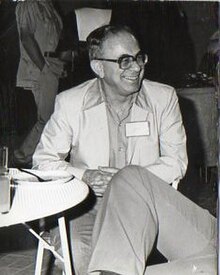
West Asia, also called Western Asia or Southwest Asia, is the westernmost region of Asia. As defined by most academics, UN bodies and other institutions, the subregion consists of Anatolia, the Arabian Peninsula, Iran, Mesopotamia, the Armenian Highlands, the Levant, the island of Cyprus, the Sinai Peninsula, and the southern part of the Caucasus Region (Transcaucasia). The region is separated from Africa by the Isthmus of Suez in Egypt, and separated from Europe by the waterways of the Turkish Straits and the watershed of the Greater Caucasus. Central Asia lies to its northeast, while South Asia lies to its east. Twelve seas surround the region (clockwise): the Aegean Sea, the Sea of Marmara, the Black Sea, the Caspian Sea, the Persian Gulf, the Gulf of Oman, the Arabian Sea, the Gulf of Aden, the Red Sea, the Gulf of Aqaba, the Gulf of Suez, and the Mediterranean Sea. The area contains the vast majority of the similarly defined Middle East, but excluding most of Egypt and the northwestern part of Turkey, and including the southern part of the Caucasus.
Mizrahi Jews, also known as Mizrahim (מִזְרָחִים) or Mizrachi (מִזְרָחִי) and alternatively referred to as Oriental Jews or Edot HaMizrach, are a grouping of Jewish communities comprising those who remained in the Land of Israel and those who existed in diaspora throughout and around the Middle East and North Africa (MENA) from biblical times into the modern era.
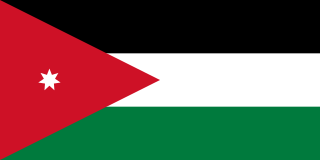
The Jordanian administration of the West Bank officially began on April 24, 1950, and ended with the decision to sever ties on July 31, 1988. The period started during the 1948 Arab-Israeli War, when Jordan occupied and subsequently annexed the portion of Mandatory Palestine that became known as the West Bank, including East Jerusalem. The territory remained under Jordanian control until it was occupied by Israel during the 1967 Six Day War and eventually Jordan renounced its claim to the territory in 1988.
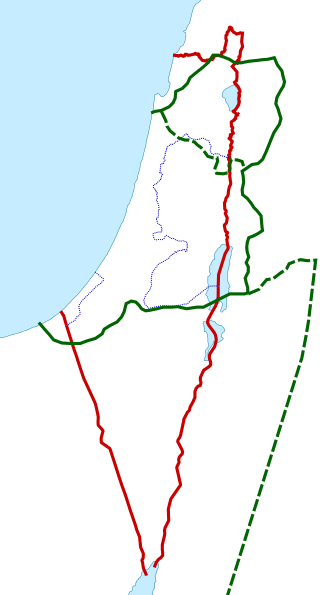
Palestine is a geographical region in West Asia. Situated in the Southern Levant, it is usually considered to include Israel and the State of Palestine, though some definitions also include parts of northwestern Jordan. Other historical names for the region include Canaan, the Promised Land, the Land of Israel, or the Holy Land.
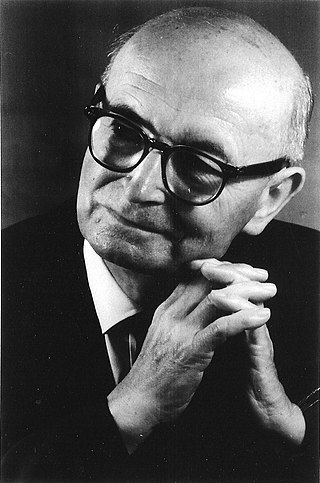
Shelomo Dov Goitein was a German-Jewish ethnographer, historian and Arabist known for his research on Jewish life in the Islamic Middle Ages, and particularly on the Cairo Geniza.

The Institute for Palestine Studies (IPS) is the oldest independent nonprofit public service research institute in the Arab world. It was established and incorporated in Beirut, Lebanon, in 1963 and has since served as a model for other such institutes in the region. It is the only institute in the world solely concerned with analyzing and documenting Palestinian affairs and the Arab–Israeli conflict. It also publishes scholarly journals and has published over 600 books, monographs, and documentary collections in English, Arabic and French—as well as its renowned quarterly academic journals: Journal of Palestine Studies, Jerusalem Quarterly, and Majallat al-Dirasat al-Filistiniyyah. IPS's Library in Beirut is the largest in the Arab world specializing in Palestinian affairs, the Arab–Israeli conflict, and Judaica.
Oleg Grabar was a French-born art historian and archeologist, who spent most of his career in the United States, as a leading figure in the field of Islamic art and architecture in the Western academe.
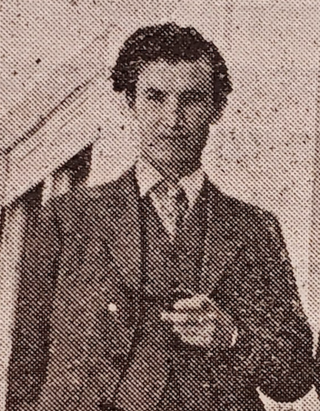
Walid Khalidi is a Palestinian historian who has written extensively on the Palestinian exodus. He is a co-founder of the Institute for Palestine Studies, established in Beirut in December 1963 as an independent research and publishing center focusing on the Palestine problem and the Arab–Israeli conflict, and was its General Secretary until 2016.

Sunni Islam is a major religion in Palestine, being the religion of the majority of the Palestinian population. Muslims comprise 85% of the population of the West Bank, when including Israeli settlers, and 99% of the population of the Gaza Strip. The largest denomination among Palestinian Muslims are Sunnis, comprising 98–99% of the total Muslim population.

The postage stamps and postal history of Israel is a survey of the postage stamps issued by the state of Israel, and its postal history, since independence was proclaimed on May 14, 1948. The first postage stamps were issued two days later on May 16, 1948. Pre-1948 postal history is discussed in postage stamps and postal history of Palestine.

The following outline is provided as an overview of and topical guide to the State of Palestine:

Edward Wadie Said was a Palestinian-American academic, literary critic, political activist, and musician. As a professor of literature at Columbia University, he was among the founders of post-colonial studies. Born in Mandatory Palestine, he was a United States citizen by way of his father, who had served in the United States Army during World War I.
Nur ad-Din Masalha commonly known in English as Nur Masalha is a Palestinian writer, historian, and academic.
The Peasants' Revolt was a rebellion against Egyptian conscription and taxation policies in Palestine. While rebel ranks consisted mostly of the local peasantry, urban notables and Bedouin tribes also formed an integral part of the revolt. This was a collective reaction to Egypt's gradual elimination of the unofficial rights and privileges previously enjoyed by the various classes of society in the Levant under Ottoman rule.
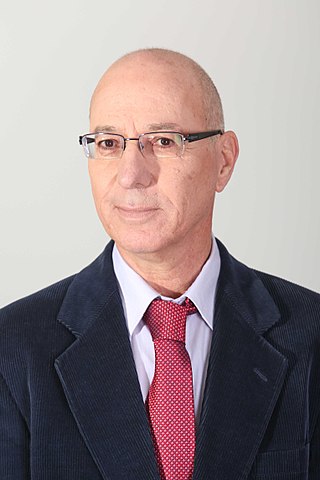
Yitzhak Reiter is an Israeli political scientist who is full professor of Islamic, Middle East and Israel Studies serving as the Head of Research Authority and Chair of Israel Studies at Ashkelon Academic College. He is also a senior researcher at both the Jerusalem Institute for Policy Research and the Harry S. Truman Institute for Peace Research of the Hebrew University of Jerusalem as well as Editor-In-Chief of Israel Academic Press.
Qasim Pasha al-Ahmad was the chief of the Jamma'in subdistrict of Jabal Nablus during the Ottoman and Egyptian periods in Palestine in the mid-19th century. He also served as the mutassalim of Jerusalem between 1832 and 1833. Qasim headed the Qasim clan, a prominent rural family of Jabal Nablus. He led the peasants of Palestine in their revolt against the Egyptian rule of Ibrahim Pasha in 1834. Following the revolt's suppression, he was captured and executed by the authorities.

Jacob M. Landau was Professor Emeritus in the Department of Political Science at the Hebrew University of Jerusalem.
Abraham Nahum Polak was an Israeli historian, a professor at the Tel Aviv University since its inception, professor of medieval history and founder of the department of Middle-Eastern History. His main areas of research were Jewish history, Arab history, nations of Islam and Africa and the history of the Khazars.
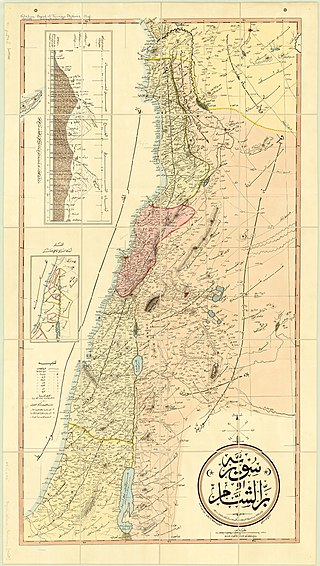
The Syrian Peasant Revolt was an armed uprising of Levantine peasant classes against the rule of Ibrahim Pasha of Egypt in 1834–35. The revolt took place in areas of Ottoman Syria, at the time, ruled by the semi-independent ruler of Egypt, who conquered the region from loyal Ottoman forces in 1831.
